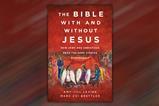In spite of its negative connotations, fear is a common word in the Old Testament. Lois Tverberg explains how Christians should understand it

It’s a fountain of life, adds length to your days, is the beginning of wisdom and leads to riches and honour. What could this wonderous thing be that the Bible describes so glowingly? It is the fear of the Lord.
If you hear this phrase and imagine cowering before a terrifying, angry God, you may find those promises astounding. But in spite of its negative connotations, fear is a common word in the Old Testament.
Even in the New Testament, Gentile believers are called “God-fearers” and the early Church was built up on “fear of the Lord” (Acts 9:31). So why does the Bible see ‘fear’ as a crucial, and even positive, idea?
The Hebrew word for fear, yirah (yeer-AH), carries a far broader meaning than our English word. To us, fear is nearly always negative; it’s about being afraid or scared. But yirah has a range of meanings, from negative (dread) to positive (worship, revere); from mild (respect) to strong (awe).
Almost every time ‘revere’ or ‘reverence’ is used in English, it is a translation of the Hebrew word yirah. In Leviticus 19:3 we are told to “yirah” our mother and father – which certainly should mean having respect or reverence for them, not shrinking in fright from them.
Jewish interpreters understand ‘fear of the Lord’ (Yirat-Adonai) exclusively in the most positive sense. It is defined as an awe and reverence for God that motivates us to do his will. Fearing God’s punishment is an inferior understanding because it is self-centred; by asking what will happen to you because of God’s knowledge of your deeds, you are not focusing on the glory of God but on your own interests.
Why fear?
When he was giving Israelites the law, God used fear as a way to give his people a conscience to keep them from secret sins. For instance, Leviticus 19:14 says: “Do not curse the deaf or put a stumbling-block in front of the blind, but fear your God. I am the Lord.”
The thing that prevents most people from wrongdoing is the fear of consequences. If you trip a sighted person they’ll get angry, but causing a blind person to stumble is something that you can get away with, since a blind person can’t identify who did it. They might not know, but God knows!
Rabbinic interpreters extend this “stumbling-block” commandment to include anyone who is “blind” in a situation where others have knowledge. To sell a person faulty merchandise by withholding information about the product’s flaws is to cause the blind to stumble.
With the internet allowing us to hide online, we all are potential victims (and perpetrators) of secret sins like this. In the Bible, sins that are particularly odious are punctuated with the statement: “I am the Lord” to remind people of God’s righteousness and constant watchfulness over their conduct.
If commands like this were not enough, Moses has more. He ends Deuteronomy 27 by having the Israelites invoke a list of curses upon themselves against easily hidden crimes, such as defrauding foreigners, committing incest or accepting bribes to kill the innocent.
In a culture where curses were taken very seriously, these would have been potent motivators to stay far away from the offences.
A blessing
An interesting thing happens when people are fully convinced that a righteous God sees their deeds: they become less corrupt. And when honesty becomes widespread, the society as a whole becomes more trusting.
This actually has an economic benefit, because people will not collaborate or build businesses with people they don’t trust. Yearly, economists assess a ‘trust index’, the results of which vary widely across the planet and often predict prosperity.
In Scandinavia and the Netherlands, public trust is as high as 77 per cent, while in some countries in Africa it is barely over ten per cent.
In The Book That Made Your World (Thomas Nelson), Vishal Mangalwadi, an Indian Christian philosopher, recounts how shocked he was to visit the Netherlands. There, farmers would leave an honesty basket next to a tank of fresh milk to allow customers to pay.
This is unthinkable in India, he says; theft is commonplace and milk is watered down or adulterated to maximise profit, meaning inspectors – who often won’t come unless bribed – are needed. Each person hired in this chain exacts a price, resulting in the cost of even basic food being extremely high. Sadly, corruption is what keeps many countries chronically poor.
Mangalwadi believes that women suffer most when integrity and trust are lacking. In some cultures, women are forced to be veiled or confined to their homes, because men fear they will be preyed upon.
Studies have found that trust tends to be highest in countries with a Protestant, Judeo-Christian history. Could the fiery preaching that brought revival in Europe and the US in the 1800s have been a factor in the prosperity of subsequent decades? Harsh as preachers’ words were on their listeners’ ears, they must have had an impact on how people lived.
God’s glory
As Christians, we know that Christ has paid for our sins. Therefore, we do not need to cringe in terror before God.
Yet even in the New Testament, we are reminded that: “There is nothing concealed that will not be disclosed, or hidden that will not be made known” (Matthew 10:26) and that, one day, Christ will “bring to light what is hidden in darkness and will expose the motives of the heart” (1 Corinthians 4:5).
In its best sense, the fear of the Lord should be an awesome awareness of Christ’s majesty. It should result in an earnest longing to please him. When you know he is always with you, it causes you to live as the disciple he wants you to be.





































No comments yet